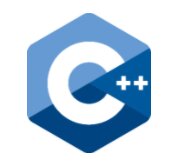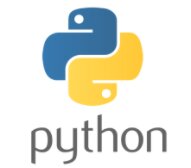Python vs. C++ – What’s the Difference?
Python and C++ both are general-purpose programming languages. However, their usage and syntax differ widely. In this article, we will highlight the most prominent differences between the two languages.
We will walk you through everything you need to know about Python and C++ to help you make informed decisions about which language best suits your application.
Explore Conditional Statements in Python
We will be covering the following sections today:
- Difference Between Python and C++
- What is C++?
- Where is C++ Used?
- What is Python?
- Where is Python Used?
- Comparison Parameters –
What is the difference between Python and C++?
| C++ | Python |
|---|---|
| The high-level and pre-compiled programming language allows you to do procedural programming. | It is a high-level and interpreted programming language. |
| It is a pre-compiled programming language, so it does not require an interpreter during compilation. | An interpreted programming language, so it requires an interpreter to run the program. |
| It is not easy to learn because of its complex syntax. | It is easy to learn, as it is very much similar to English. |
| In C++, the programmer needs to manually allocate the new variable and deallocate it when no longer required. | Python performs the allocation automatically. |
| It does not contain a garbage collector. | It contains a garbage collector and offers a dynamic memory management mechanism. |
| It is a statically typed programming language. | Dynamically typed programming language. |
| Variables are declared by mentioning the type of the variable. | It does not require the declaration of the variables. |
| Variables inside the loop are not accessible outside the loop. | Variables inside the loop are also accessible outside the loop. |
| It has long lines of code as compared to Python. | It contains fewer lines of code. |
| It supports both procedural and object-oriented programming. | It supports procedural, object-oriented, and functional programming. |
| Contains 52 keywords. | Contains 33 keywords. |
| C++ offers fewer job opportunities but higher salaries. | Python offers more job opportunities but lower salaries as compared to C++. |
Best-suited C++ courses for you
Learn C++ with these high-rated online courses
What is C++?
C++ is an extension of the C programming language. It was invented by Bjarne Stroustrup in 1979 and was called ‘C with classes. Over time, it expanded significantly to become the modern C++ language. C++ is object-oriented and consists of features that improve its functionality and allow low-level memory manipulation.
C++ can be considered an intermediate-level programming language as it supports functionalities of both high-level and low-level programming. But commonly referred to as high-level.
It is a pre-compiled programming language that allows you to do procedural programming.
Also Read: What is C++?
Where is C++ Used?
- It plays a major role in software development. For example, Adobe, YouTube, Spotify, etc.
- Preferred language for game development as it can handle the complexities of 3D gaming.
- It is closer to the hardware. Hence, it is used for making compilers for other programming languages.
- It is used for developing embedded systems and manufacturing gadgets such as smartwatches and IoT devices, etc.
What is Python?
Python is a high-level object-oriented programming language that was invented by Guido Van Rossum in 1991. Python is built to have extensive library support for easy implementation of various programs and algorithms. Its syntax is the simplest to understand. In fact, its language constructs allow developers to write clear, logical codes for their applications.
Must Read: What is Python?
Where is Python Used?
- Used in web development as it supports various frameworks that ease your tasks. For example, Django and Flask.
- Used in software development as a supporting language.
- A widely popular language for Machine Learning and Artificial Intelligence, Data Analysis, etc. because it supports various libraries and packages.
- Used in creating advanced Robotics.
Comparison Parameters
Now that we have been introduced briefly to both languages, let’s look at the most prominent differences between the two –
Simplicity of Code: Python
Let’s compare the codes of both languages, shall we? The following example illustrates a C++ program that prints an integer value of 12:
Now, let’s see how we write the same program in Python:
That’s it! Do you see how Python significantly reduces the number of code lines in the program?
Apart from that, we also do not need to declare the variable types in Python, unlike in C++, where we have declared the type of the variable x explicitly as int.
Hence, Python programs are easier to code and interpret by humans as compared to C++.
// Code in C++#include <iostream> using namespace std;
int main() { int x = 12; cout << "value of x is : " <<x; return 0; }
#Code in Pythonx = 10 print(x)
Ease of Learning: Python
As demonstrated by the above example, Python syntax is similar to the English language and hence, is easier to understand. Naturally, for beginners in programming, Python is the language of choice due to its ease of learning.
However, C++ programmers find it easier to switch to programming languages such as Java or C#. While Python is easier, its programmers may find even a jump to JavaScript difficult.
Speed of Code Compilation: C++
C++ is faster than Python because it is statically typed i.e., its various types are explicitly declared and determined during compile time, which leads to a faster compilation of code.
Python, on the other hand, supports dynamic typing and uses an interpreter to assign variables a type based on their value at runtime, which makes its compilation slower.
Memory Management: Python
In C++, memory is allocated to variables and deallocated when the variable is no longer used in the code. This is done to avoid memory leaks. A memory leak occurs when programmers allocate memory by using a new keyword and forget to deallocate the memory when no longer required. That piece of memory cannot be used by the program anymore and is wasted.
On the contrary, Python language provides an in-built garbage collection and dynamic memory management mechanism that allocates and deallocates the memory on its own without programmers having to do it manually.
Popularity: Python
Although both Python and C++ are very popular languages, realistically, Python is arguably the fastest growing language today whereas C++ is fading in popularity.
C++ is a preferred choice for desktop applications. But due to the proliferation of web applications vs. desktop applications, Python comes out on top because it can be used for web applications far more easily than C++.
You can also explore – Python online courses and certifications
Job Opportunities: Python
Both Python and C++ programmers would find it very easy to find a job. However, the hiring volume for Python is far greater than that of C++. As of 2022. Because of this, it appears that C++ being the older language has outlived its days in glory. But there’s one leading factor we need to keep in mind — salary, which changes the game.
Salaries: C++
A C++ developer has an average salary of ₹7,68,406 per annum in India as compared to the average salary of a Python developer, which is ₹3,88,544 per annum.
So, why do C++ developers earn so much more than Python developers? It’s because C++ is harder to master and due to the lesser availability of the skill in the market.
An expert in C++ can command a very high salary because even if fewer applications are being developed in C++, existing applications that are older have to be modified and maintained constantly.
You must explore – C++ online courses and certifications
Endnotes
Hope this article was helpful for you to understand the difference between Python and C++ programming languages.
Keep Learning!!
Keep Sharing!!
Related Reads:















This is a collection of insightful articles from domain experts in the fields of Cloud Computing, DevOps, AWS, Data Science, Machine Learning, AI, and Natural Language Processing. The range of topics caters to upski... Read Full Bio





